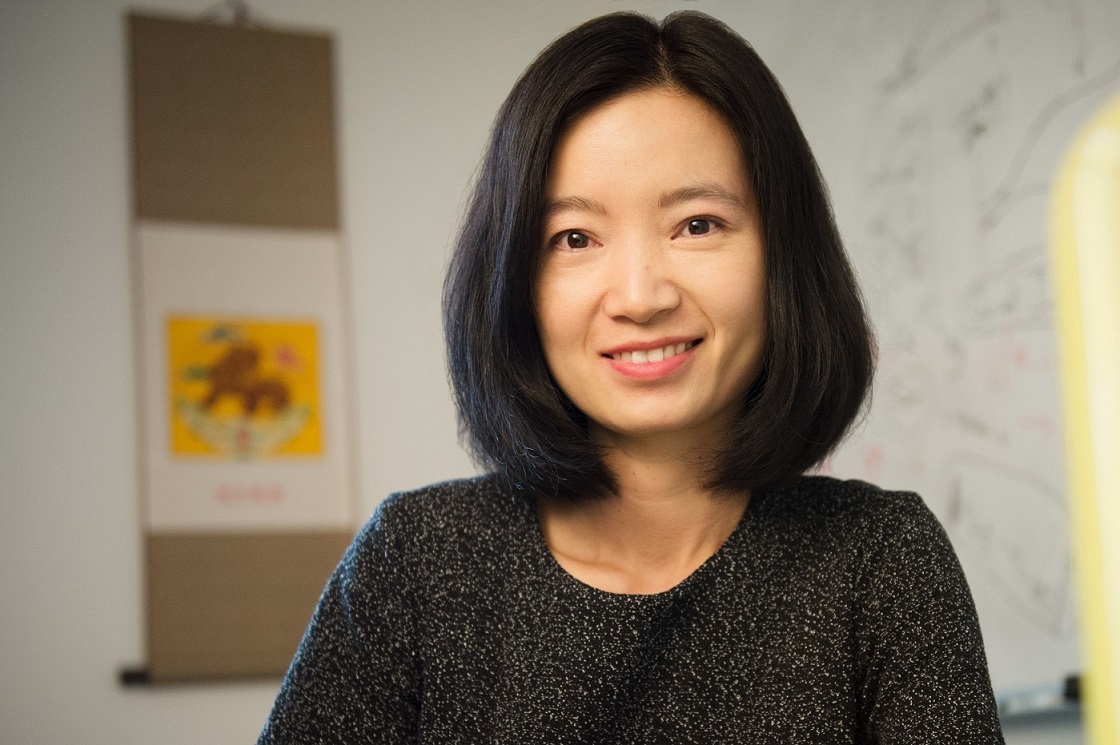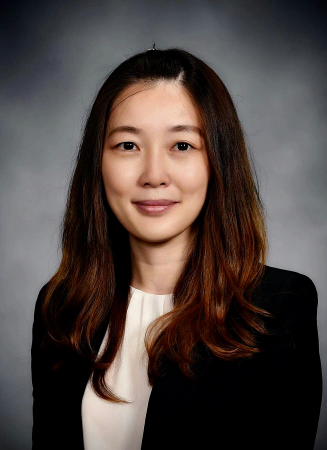 |
 |
 |
 |
| Xiaoli Li | Yizhou Sun | Tim Weninger | Lifang He |
| Principal Scientist & Adjunct professor |
Associate Professor | Associate Professor | Assistant Professor |
| A*STAR & Nanyang Technological University |
University of California at Los Angeles |
University of Notre Dame | Lehigh University |
 Title of Keynote: Heterogenous information network for bioinformatics applications
Abstract: Rich biological data, such as protein interactions, genome sequences, gene expression, gene ontology, disease genes, drug-target interactions, have been accumulated in recent years. These data can often be organized as heterogeneous information networks. In this talk, he will talk about two important applications in bioinformatics domain, namely disease gene prediction and drug target interaction prediction on such heterogeneous data. Computational predictions of disease genes and drug discovery have become essential tasks in research communities and commercial companies, as they can narrow down the search space by suggesting potential disease genes and new drugs for wet-lab screening to improve productivity and efficiency.
Biography: Xiaoli Li is currently a dept head and principal scientist at the Institute for Infocomm Research, A*STAR, Singapore. He also holds adjunct full professor position at Nanyang Technological University Singapore. His research interests include data mining, machine learning, AI, and bioinformatics. He has been serving as area chairs/senior PC members/workshop chairs in leading data mining and AI related conferences (including KDD, ICDM, SDM, PKDD/ECML, WWW, IJCAI, AAAI, ACL and CIKM). Xiaoli has published more than 250 high quality papers with more than 10,000 citations and won eight best paper awards. Some of his representative research include positive unlabelled learning (more than 2000 citations; the term PU Learning was coined in his paper), time series sensor data analytics for equipment health monitoring task (more than 1000 citations; his IJCAI 2015 paper has been cited by more than 800 times), social/biological network mining (more than 1000 citations, won three Best Paper Awards in international conferences) etc.
Title of Keynote: Heterogenous information network for bioinformatics applications
Abstract: Rich biological data, such as protein interactions, genome sequences, gene expression, gene ontology, disease genes, drug-target interactions, have been accumulated in recent years. These data can often be organized as heterogeneous information networks. In this talk, he will talk about two important applications in bioinformatics domain, namely disease gene prediction and drug target interaction prediction on such heterogeneous data. Computational predictions of disease genes and drug discovery have become essential tasks in research communities and commercial companies, as they can narrow down the search space by suggesting potential disease genes and new drugs for wet-lab screening to improve productivity and efficiency.
Biography: Xiaoli Li is currently a dept head and principal scientist at the Institute for Infocomm Research, A*STAR, Singapore. He also holds adjunct full professor position at Nanyang Technological University Singapore. His research interests include data mining, machine learning, AI, and bioinformatics. He has been serving as area chairs/senior PC members/workshop chairs in leading data mining and AI related conferences (including KDD, ICDM, SDM, PKDD/ECML, WWW, IJCAI, AAAI, ACL and CIKM). Xiaoli has published more than 250 high quality papers with more than 10,000 citations and won eight best paper awards. Some of his representative research include positive unlabelled learning (more than 2000 citations; the term PU Learning was coined in his paper), time series sensor data analytics for equipment health monitoring task (more than 1000 citations; his IJCAI 2015 paper has been cited by more than 800 times), social/biological network mining (more than 1000 citations, won three Best Paper Awards in international conferences) etc.
 Title of Keynote: Graph Neural Networks for Heterogeneous Networks: Effectiveness, Efficiency, and Applications
Abstract: Graph representation learning, which aims to leverage structural information to represent objects in a lower dimensional vector space, has received tremendous attention recently, due to the ubiquity of graphs and their wide applications, such as recommender systems, knowledge graphs, and social networks. Different from earlier studies that rely on either human heuristics or shallow embedding, graph neural networks (GNNs) are able to provide much more adaptive and powerful representation for objects. However, there are still several barriers to make them practically useful for real-world graphs, which are extremely large-scale, heterogeneous, and label scarce. In this talk, I will introduce our recent efforts in addressing these challenges via (1) layer dependent importance sampling for nodes, (2) heterogeneous graph transformer, and (3) GNN pre-training to transfer knowledge from unlabeled data. In the end, I will also showcase several exciting graph applications that directly benefit from the representation learning techniques.
Biography: Yizhou Sun is an associate professor at department of computer science of UCLA and an Amazon Scholar. She received her Ph.D. in Computer Science from the University of Illinois at Urbana-Champaign in 2012. Her principal research interest is on mining graphs/networks, and more generally in data mining, machine learning, and network science, with a focus on modeling novel problems and proposing scalable algorithms for large-scale, real-world applications. She is a pioneer researcher in mining heterogeneous information network, with a recent focus on deep learning on graphs/networks. Yizhou has over 150 publications in books, journals, and major conferences. Tutorials of her research have been given in many premier conferences. She is a recipient of Best Student Paper Awards for KDD and BCB, ACM SIGKDD Doctoral Dissertation Award, Yahoo ACE (Academic Career Enhancement) Award, NSF CAREER Award, CS@ILLINOIS Distinguished Educator Award, Amazon Research Awards (twice), and Okawa Foundation Research Award.
Title of Keynote: Graph Neural Networks for Heterogeneous Networks: Effectiveness, Efficiency, and Applications
Abstract: Graph representation learning, which aims to leverage structural information to represent objects in a lower dimensional vector space, has received tremendous attention recently, due to the ubiquity of graphs and their wide applications, such as recommender systems, knowledge graphs, and social networks. Different from earlier studies that rely on either human heuristics or shallow embedding, graph neural networks (GNNs) are able to provide much more adaptive and powerful representation for objects. However, there are still several barriers to make them practically useful for real-world graphs, which are extremely large-scale, heterogeneous, and label scarce. In this talk, I will introduce our recent efforts in addressing these challenges via (1) layer dependent importance sampling for nodes, (2) heterogeneous graph transformer, and (3) GNN pre-training to transfer knowledge from unlabeled data. In the end, I will also showcase several exciting graph applications that directly benefit from the representation learning techniques.
Biography: Yizhou Sun is an associate professor at department of computer science of UCLA and an Amazon Scholar. She received her Ph.D. in Computer Science from the University of Illinois at Urbana-Champaign in 2012. Her principal research interest is on mining graphs/networks, and more generally in data mining, machine learning, and network science, with a focus on modeling novel problems and proposing scalable algorithms for large-scale, real-world applications. She is a pioneer researcher in mining heterogeneous information network, with a recent focus on deep learning on graphs/networks. Yizhou has over 150 publications in books, journals, and major conferences. Tutorials of her research have been given in many premier conferences. She is a recipient of Best Student Paper Awards for KDD and BCB, ACM SIGKDD Doctoral Dissertation Award, Yahoo ACE (Academic Career Enhancement) Award, NSF CAREER Award, CS@ILLINOIS Distinguished Educator Award, Amazon Research Awards (twice), and Okawa Foundation Research Award.
 Title of Keynote: Inspectable and Respectable Heterogeneous Graph Mining Models
Abstract: Deep learning methods have had great success in recent years in various fields ranging from computer vision to natural language processing. Heterogeneous graph data poses a unique challenge to graph neural networks, evidenced by the prevalence of non-neural methods in many applied settings. In this talk, we delineate some unexpected drawbacks of the neural models and advocate for a principled, interpretable approach using graph grammars. Like their string counterparts, graph grammars encode simple rewriting rules consisting of graphlets and instructions on how they fit together. Despite their simplicity and unsupervised nature, we demonstrate that these models can capture both the topological fidelity and complex attribute mixing patterns found in real-world graphs.
Biography: Tim Weninger is the Frank M. Friedmann Collegiate Associate Professor of Engineering at the University of Notre Dame. He received the Ph.D. degree in computer science from the University of Illinois Urbana–Champaign in 2013. His research in social media and artificial intelligence looks to better understand how humans create and consume information, especially in online social systems. He has received the CAREER award from the National Science Foundation as well as research grants from the U.S. Air Force Office of Scientific Research, The U.S. Army Research Office, the U.S. Defense Advanced Research Projects Agency and the John Templeton Foundation. He currently leads a USAID-sponsored program advancing media literacy for new digital arrivals.
Title of Keynote: Inspectable and Respectable Heterogeneous Graph Mining Models
Abstract: Deep learning methods have had great success in recent years in various fields ranging from computer vision to natural language processing. Heterogeneous graph data poses a unique challenge to graph neural networks, evidenced by the prevalence of non-neural methods in many applied settings. In this talk, we delineate some unexpected drawbacks of the neural models and advocate for a principled, interpretable approach using graph grammars. Like their string counterparts, graph grammars encode simple rewriting rules consisting of graphlets and instructions on how they fit together. Despite their simplicity and unsupervised nature, we demonstrate that these models can capture both the topological fidelity and complex attribute mixing patterns found in real-world graphs.
Biography: Tim Weninger is the Frank M. Friedmann Collegiate Associate Professor of Engineering at the University of Notre Dame. He received the Ph.D. degree in computer science from the University of Illinois Urbana–Champaign in 2013. His research in social media and artificial intelligence looks to better understand how humans create and consume information, especially in online social systems. He has received the CAREER award from the National Science Foundation as well as research grants from the U.S. Air Force Office of Scientific Research, The U.S. Army Research Office, the U.S. Defense Advanced Research Projects Agency and the John Templeton Foundation. He currently leads a USAID-sponsored program advancing media literacy for new digital arrivals.
 Title of Keynote: Tensor Methods for Brain Network Analysis: Promises, Challenges and Opportunities
Abstract: Tensors, as natural generalizations of vectors and matrices, are becoming more and more popular for representing modern data. Tensor methods have also received a fair amount of attention from both academe and industry due to their intriguing algebraic and geometric properties, as well as their relationship to computational complexity. In this talk, I will give an overview of the research that my lab has done in recent years on developing tensor-based machine learning methods for analyzing brain network (graph) data, involving multi-view learning, sparse learning, kernel learning, and graph neural networks. I will also discuss the challenges on this topic and future opportunities.
Biography: Lifang He is currently an Assistant Professor in the Department of Computer Science and Engineering at Lehigh University. Prior to joining Lehigh, she did her first postdoc in the Big Data and Social Computing Lab at University of Illinois at Chicago, and her second postdoc in medical school jointly at Cornell University and University of Pennsylvania. Her research interest primarily lies in the areas of machine learning and data mining, particularly with tensor analysis and deep learning for medical data, such as brain network and neuroimaging analysis. She regularly publishes on top venues of both machine learning and data mining (e.g., KDD, ICML, NeurIPS) and medicine (e.g., American Medical Informatics Association, Cancer Epidemiology and Prevention Biomarkers).
Title of Keynote: Tensor Methods for Brain Network Analysis: Promises, Challenges and Opportunities
Abstract: Tensors, as natural generalizations of vectors and matrices, are becoming more and more popular for representing modern data. Tensor methods have also received a fair amount of attention from both academe and industry due to their intriguing algebraic and geometric properties, as well as their relationship to computational complexity. In this talk, I will give an overview of the research that my lab has done in recent years on developing tensor-based machine learning methods for analyzing brain network (graph) data, involving multi-view learning, sparse learning, kernel learning, and graph neural networks. I will also discuss the challenges on this topic and future opportunities.
Biography: Lifang He is currently an Assistant Professor in the Department of Computer Science and Engineering at Lehigh University. Prior to joining Lehigh, she did her first postdoc in the Big Data and Social Computing Lab at University of Illinois at Chicago, and her second postdoc in medical school jointly at Cornell University and University of Pennsylvania. Her research interest primarily lies in the areas of machine learning and data mining, particularly with tensor analysis and deep learning for medical data, such as brain network and neuroimaging analysis. She regularly publishes on top venues of both machine learning and data mining (e.g., KDD, ICML, NeurIPS) and medicine (e.g., American Medical Informatics Association, Cancer Epidemiology and Prevention Biomarkers).